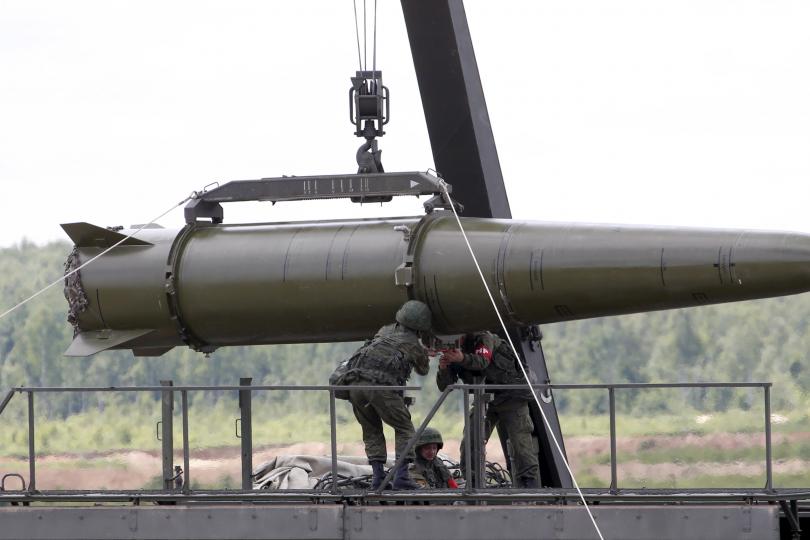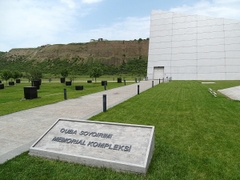“Hold a true friend with both your hands” says a Nigerian proverb. Indicative of this may be the recent talks between Russia and Armenia that could signal yet another milestone in the strengthening of relations. A new military rapprochement seems on the horizon after the Kremlin confirmed a proposal to deepen military ties between these two Eurasian nations.
Longtime strategic allies, Russia and Armenia, agreed to create a new joint armed force that brings a number of troops from both sides under a unified command. Russian President Vladimir Putin welcomed the idea with an officially signed decree.
Putin signed the decree establishing this joint task force and cemented the mutual agreement made during the Defense Ministers’ Council last December. Russian Defense Minister Sergei Shoygu then announced plans regarding the,
“common steps on the joint air defense system” and “broad range of issues of cooperation in the military and military-technical spheres of the Kremlin and Yerevan."
Also during the Defense Minister's Council meeting,
“Russia also announced an arms deal with Armenia early this year, saying Moscow will give Yerevan a $200 million credit to buy Russian multiple-launch rocket systems, anti-tank missiles, and handheld antiaircraft missiles, among other military equipment.” (The Moscow Times, November 16, 2016).T
The ultimate goal of this combined military unit is to provide mutual defense aid in the event of a military move against either Russia or Armenia. Russian media outlet Interfax reported that one of the joint military groups will deploy its forces to protect Russia and Armenia’s land borders, as well as working closely within the Collective Security Treaty Organization (CSTO). Armenia is one of the members of this Russia-led military bloc, one that many experts dub as a direct challenge to the supremacy of NATO.
The commanding officer of the joint forces is to be appointed by the Supreme Commander of the Armenian Armed Forces. The commander of the combined forces will be subordinate to Armenia's military Chief of Staff during peacetime. During war time or times of military tension, the force will revert to Russian command.
Illustrating the high-level nature of this pact, it was Mr. Putin who personally ordered Defense Minister Shoygu and Foreign Minister Sergei Lavrov to negotiate with their Armenian counterparts and to ink the agreement.
This is not the first time the Kremlin and Yerevan have strengthened military ties. Last December, each signed an agreement building a regional Unified Air Defense System in the Caucasus as part of Joint Commonwealth of Independent States Air Defense System, according to Sputnik News, a Russian news service.
Russia and Armenia have long, deep and historical military ties, where the former plays a crucial role in terms of the latter’s airspace and border protection. Armenia hosts a large number of Russian military forces, including infantry, armor, artillery, air defense and other auxiliary forces. Experts agree that the entire national security apparatus of Armenia is under the iron shield of Russia’s military seemingly to guard against incursions by such nation as Turkey and Azerbaijan.
Russia is also the main arms supplier to Armenia. Nearly the entire armed forces of Armenia are outfitted with Russian weapons and materiale. The two sides have enjoyed deals worth millions of US dollars over the recent years, mostly by having Russia loan Armenia funds to purchase the Russia weapons.
Azerbaijan, too, utilizes some Russian weaponry, spending nearly $4 billion to purchase Russia-made weapons and military materiale over the past years.
Political experts believe that Russia’s arms business as related to Nagorno-Karabakh conflict, poses a threat to regional security. Nonetheless, Russia repeatedly announces no intention to stop arms sales to the conflicting countries.
“Russia will continue selling weapons to both Armenia and Azerbaijan, despite the recent violence in disputed Nagorno-Karabakh,”
Russian Deputy Prime Minister Dmitry Rogozin said in an interview with independent Ekho Moskvy radio, describing it as a “deterrent factor.”
The Nagorno-Karabakh conflict emanates from Armenia’s illegal territorial claims against Azerbaijan. A bloody war ensued in 1991 resulting in the occupation of Azerbaijan’s internationally recognized region of Nagorno-Karabakh. The war ended with a cease fire signed in 1994. However, the now frozen conflict promises to heat up and expand into a regional conflagration.
The conflict turned hot this April with a four-day war that saw Armenia losing ground, men and materiale when confronted by Azerbaijan's well-equipped and professional fighting Force. The 4-day war ended in Azerbaijan liberation a large swath of strategic highlands.




 Azerbaijan has been recognized as one of the safest countries in the world, ranking 90th among 163 countries on the Global Terrorism Index 2025 (GTI).
Azerbaijan has been recognized as one of the safest countries in the world, ranking 90th among 163 countries on the Global Terrorism Index 2025 (GTI).
 The Azerbaijani Defense Ministry has reported ongoing shelling of its army positions by Armenian forces since last week.
The Azerbaijani Defense Ministry has reported ongoing shelling of its army positions by Armenian forces since last week.
 On Monday, Israel awarded gas exploration licenses to a consortium that includes Azerbaijan’s energy conglomerate SOCAR, bp, and Israel’s NewMed En...
On Monday, Israel awarded gas exploration licenses to a consortium that includes Azerbaijan’s energy conglomerate SOCAR, bp, and Israel’s NewMed En...
 Azerbaijanis around the world are commemorating March 31 as the Day of Genocide of Azerbaijanis, which took place 107 years ago and is considered o...
Azerbaijanis around the world are commemorating March 31 as the Day of Genocide of Azerbaijanis, which took place 107 years ago and is considered o...
 Azerbaijan’s historical biographical film “Taghiyev” has won the Best Feature Film award at the Dehancer Colorist Awards 2024. The film, which chro...
Azerbaijan’s historical biographical film “Taghiyev” has won the Best Feature Film award at the Dehancer Colorist Awards 2024. The film, which chro...



